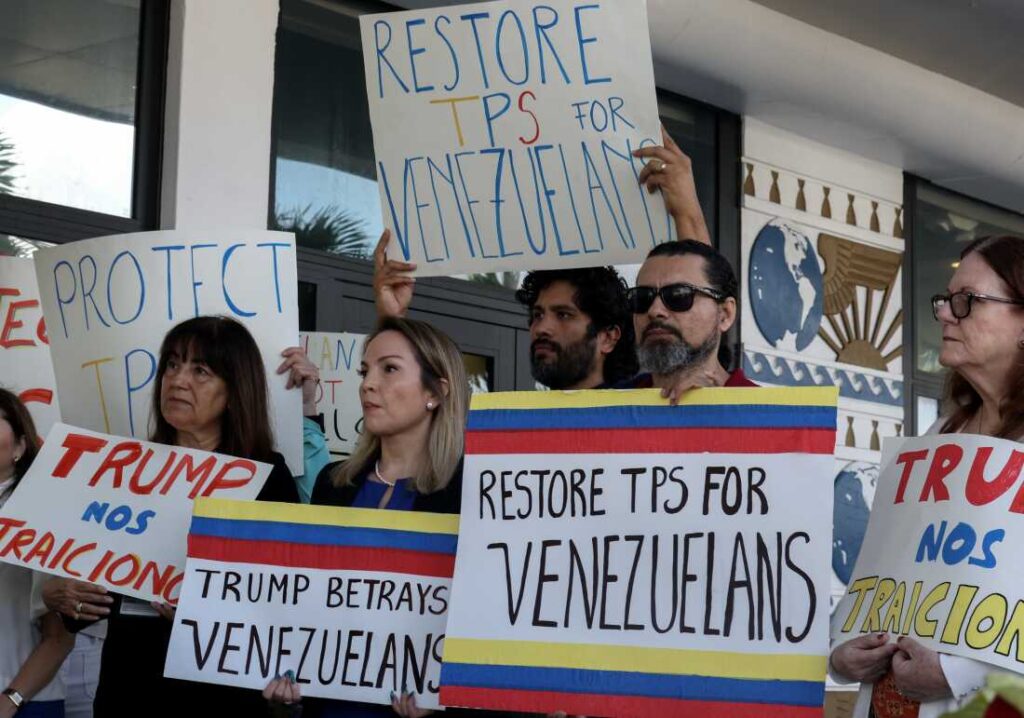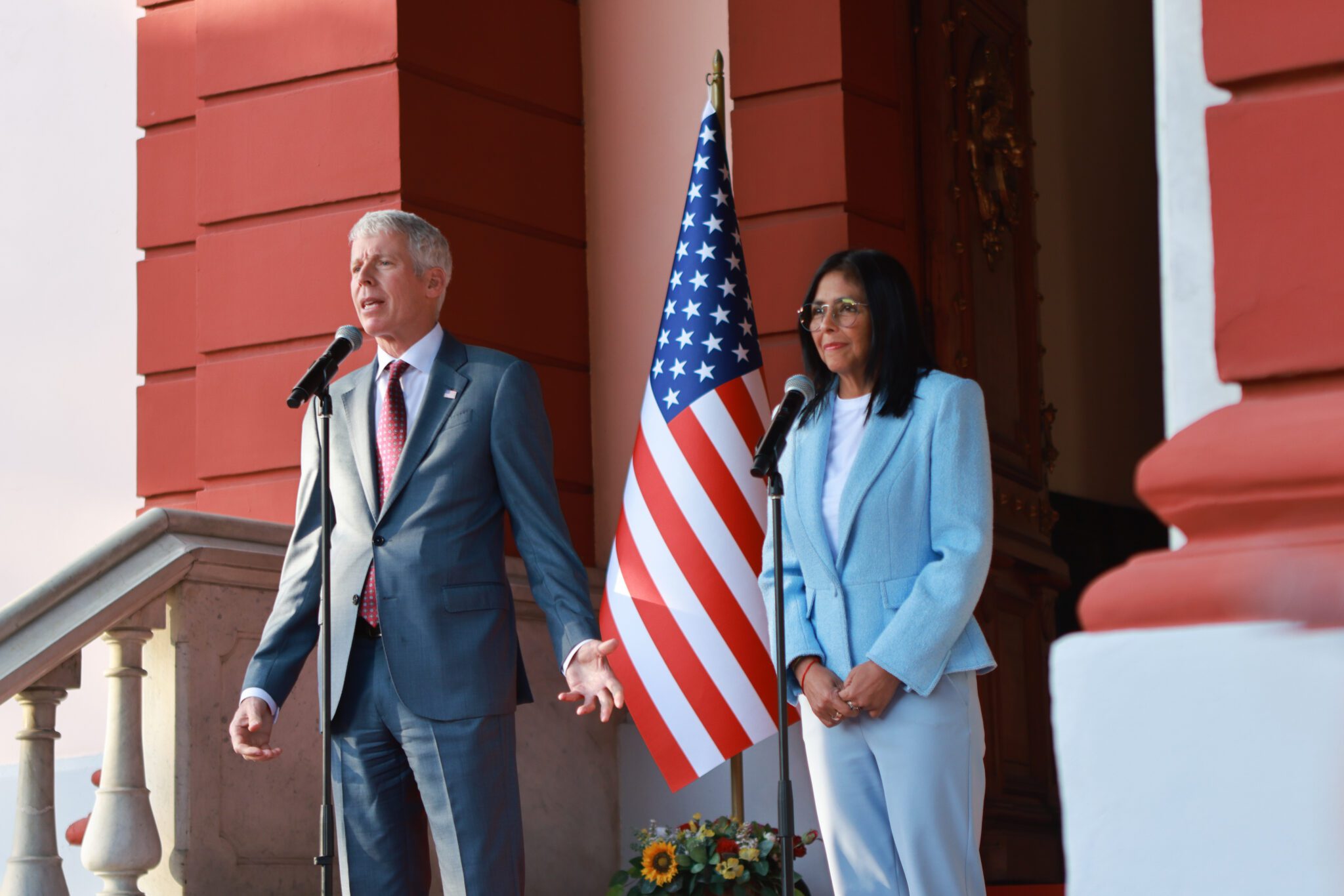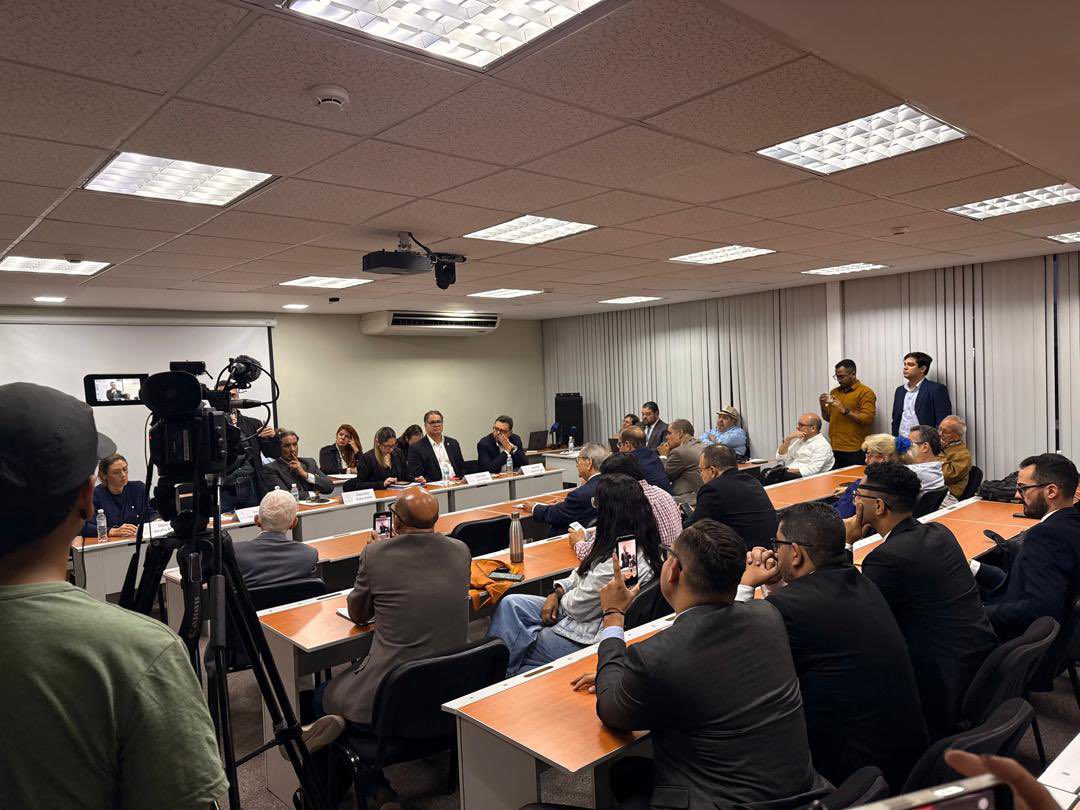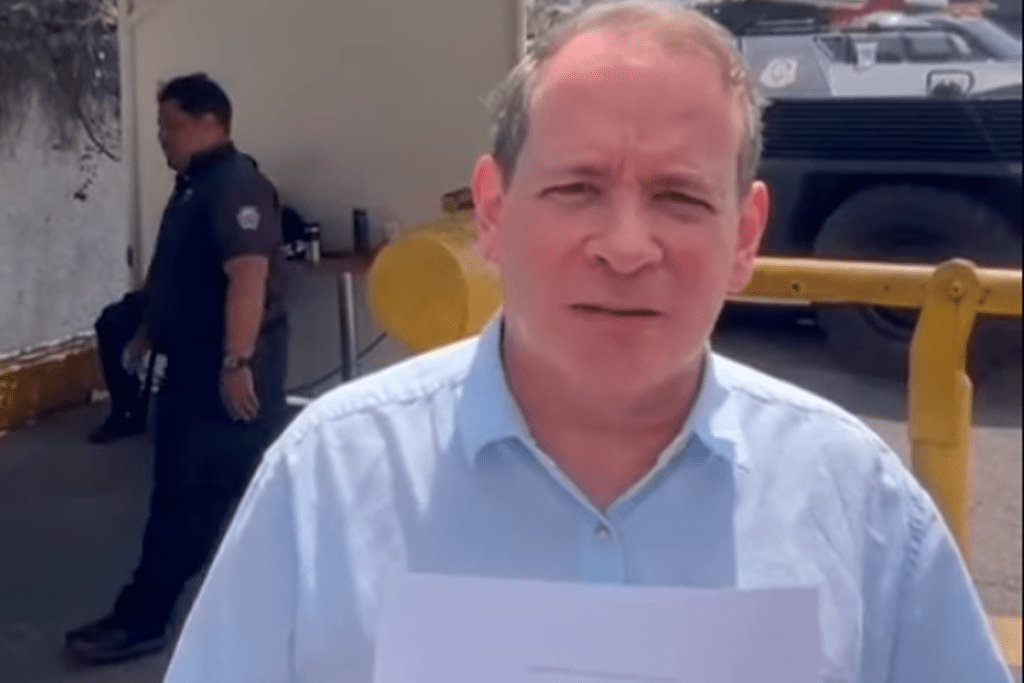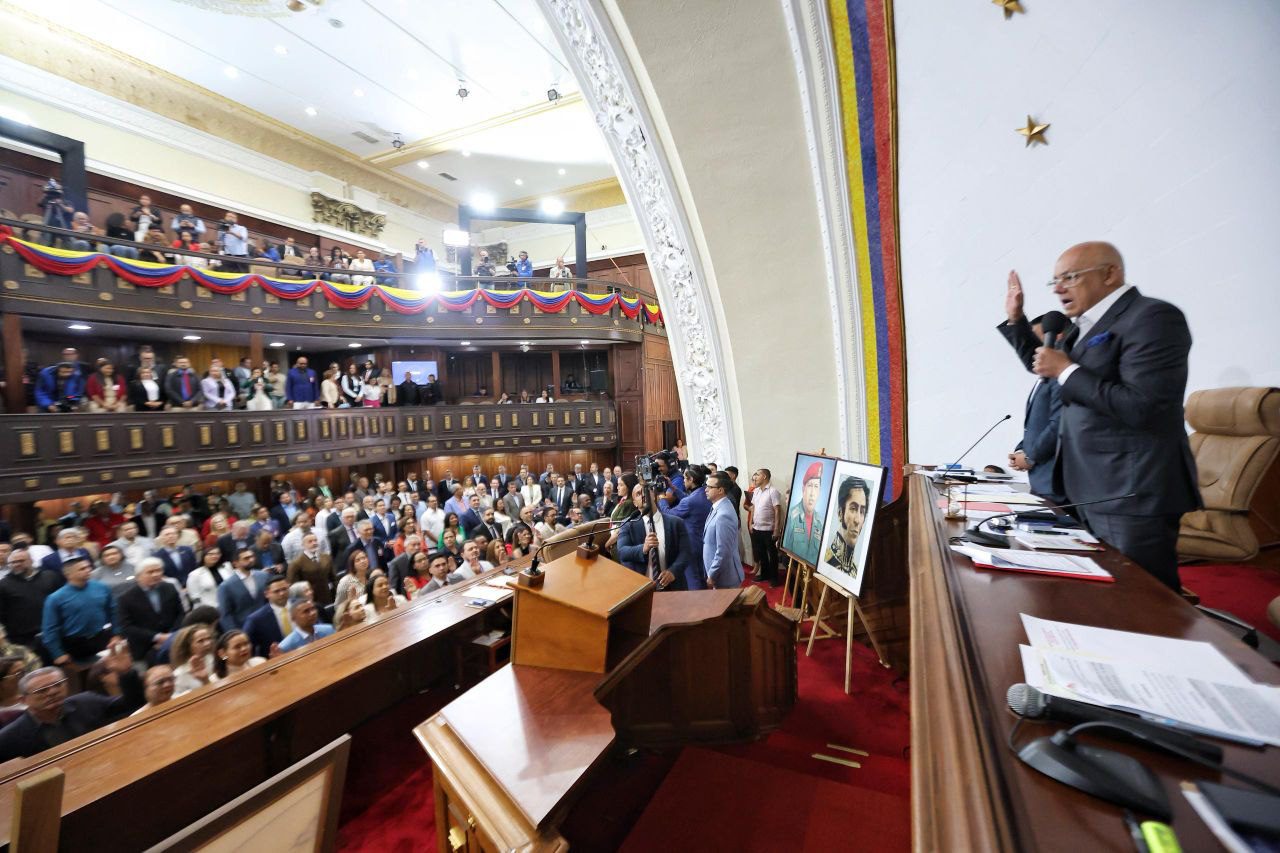The termination of the benefit marks a radical shift in U.S. immigration policy toward a large and vulnerable community. Photo: Venezuelan American Caucus.
Guacamaya, November 8, 2025. The Venezuelan community in the United States faces a turning point after November 7, the day Temporary Protected Status (TPS) officially ended. Now, around 600,000 Venezuelans lose their work permits and are no longer protected from deportation.
The measure that for years allowed Venezuelans to legally reside and work in the U.S. came to an end this Friday. As a result, a group of 250,000 migrants who received TPS designation in 2021 joins another 350,000 beneficiaries from 2023, whose protection was revoked a month earlier following a U.S. Supreme Court ruling.
The only exception applies to a minority of 2023-designated beneficiaries who submitted renewal applications before February 5, 2025. They will retain their work permits until October 2026. The rest lost their status following the October ruling and the inability to extend the 2021 designation.
From this point forward, those affected by the shift in U.S. immigration policy must seek alternative legal pathways to avoid deportation proceedings. Meanwhile, the complex and contradictory political and social situation in Venezuela continues to push its citizens to seek refuge abroad.
Political Voices Reemerge Amid Tensions
With the expiration of TPS, several public figures in Venezuelan politics have spoken out—some after months of silence during the decisions, appeals, and rulings that led to the end of protection.
María Corina Machado and Edmundo González issued statements urging the U.S. to reconsider the termination of TPS, though their appeals came on the very day the benefit expired. This suggests a lack of follow-through and concrete action since the initial announcement in February, when María Corina expressed her intent to advocate for migrant protections.
“Our hearts are with each of them in this critical situation. We work day and night to urge U.S. authorities to review the case and issue a protective status. We’ve made this request to the administration and Congress through ongoing efforts,” the leaders stated jointly via X.
In April, President Nicolás Maduro directly blamed María Corina for the suspension of TPS, accusing her of negatively influencing the U.S. decision. “It was a manipulation created by María Corina Machado, Leopoldo López, and Juan Guaidó to justify sanctions and aggression against the people. We’ve denounced this, and our people will continue to defeat that manipulation with truth,” he said at the time.
Meanwhile, other opposition figures such as Henrique Capriles and Antonio Ecarri have maintained a consistent stance opposing the cancellation of TPS and demanding that the U.S. government reconsider the measure.
Civil organizations warn that the decision could increase the risk of labor exploitation, mass deportations, and family separations.
All of this unfolds amid political tensions over the recent U.S. military deployment in the Caribbean, which María Corina has publicly endorsed. The situation, reflecting deep political polarization, adds further complexity to the migration policy shift.
New Options for Venezuelans to Avoid Deportation
In light of the decision, affected Venezuelans have several alternatives, though none offer the same guarantees or simplicity as TPS. Experts like immigration attorney Jesús Reyes emphasize that “there is no collective pathway, but there are legal options on a case-by-case basis.” However, the lack of a clear and swift process raises concerns, as most are now in legal limbo.
One of the most accessible measures is asylum, but the Trump administration has tightened criteria for applications, instructing judges since April 2025 to dismiss cases deemed “deficient.” This process can be lengthy, uncertain, and under current conditions, may yield low approval rates.
Another alternative is applying for humanitarian or immigrant visas under specific conditions. These include the U visa, for victims of serious crimes who cooperate with authorities; the T visa, for victims of human trafficking or labor exploitation; and VAWA, for victims of domestic violence.
It is also possible to explore regularization mechanisms through family or employment sponsorship. Migrants with qualified job offers may apply for work visas. Permanent residency may also be requested through an immediate relative, such as a spouse or a U.S. citizen child over 21.
The Department of Homeland Security (DHS) is promoting voluntary departure for undocumented immigrants via the CBP Home app, offering incentives such as free travel, waiver of penalties for unlawful presence, and financial support of $1,000. This aims to facilitate return to their country of origin or a third country where they hold legal status.
Immigration attorney José Guerrero, speaking to Telemundo Digital, advised affected individuals to “consult with an expert immigration lawyer to explore their case options” and avoid falling victim to fraud. Similarly, attorney Jessika Domínguez urged Venezuelans to “review their immigration status as soon as possible.”

